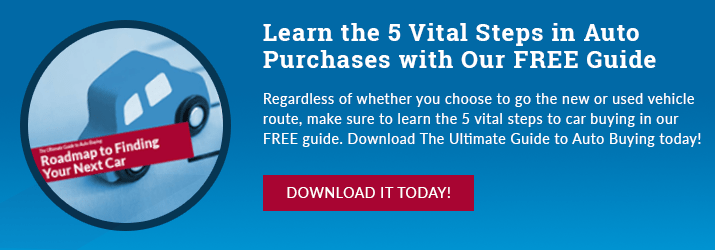
New vs. Used Cars: Which Vehicle is Right for You?
If you’re in the market for a new vehicle, you have an abundance of options. In 2015 alone, 17.5 million cars were sold from dealerships across the country. With a rise in the amount of buyers since the recession, car manufacturers are churning out more new vehicles than ever. And more new vehicles means more used vehicles are on the market as well.
A common question among buyers is which is the correct financial choice for them, buying a used vehicle or a new vehicle. What may be the right decision for one person could be wrong for another. We’ve put together a list of some of the major pros and cons for both new and used vehicles, so you can make the best decision for you.
New Vehicles
Pros
- The car is completely customizable. You’re able to pick the exact features and packages you want. This will give you greater flexibility in regard to price.
- You’ll get the best warranties in the business for the best price.
- Your car will come with the latest safety features, technology, and fuel efficiency.
- It will cost less to maintain, and need fewer repairs than a used vehicle.
- The dealership may offer incredible cash rebates or incentives, and offer perks like free inspections or oil changes.
Cons
- If you want a custom package that the dealership doesn’t currently have in stock, you’ll have to wait for the car to be assembled and shipped to you.
- New cars lose around 20-30% of their value as soon as you drive them off the dealership’s lot, a phenomenon known as depreciation.
- A new car will have a higher sticker price.
- You’ll pay more for car insurance on a monthly basis.
Used Vehicles
Pros
- The purchase price will be cheaper than a new model.
- You won’t have to take a hit on the depreciation of the vehicle.
- Certified pre-owned vehicles come with a series of inspections and often a new warranty.
- Your insurance rates will be lower.
- You can get a luxury brand car for the same price as a lower-quality new vehicle.
Cons
- The car will require repairs sooner than a new model, and will cost more to maintain.
- You won’t have the latest safety features, technology, or fuel efficiency.
- There won’t be as many cash rebates or incentives when buying, so you will have to spend more money up-front.
- It will require you to do more homework to make sure the car has a clean history. You may want to bring your own mechanic to do an independent inspection and/or pay to check the vehicle identification number (VIN) on sites like CarFax.
If cost is your number one concern, then most experts agree that a used car would be the best financial choice for you. Cars depreciate so quickly that you can buy a vehicle that is only a few years old, yet costs thousands less than its newer model. Financial institutions and car dealerships have a variety of financing options for both new and used cars, so just make sure to get pre-approved before shopping so you know exactly what you can afford.

-2.png?width=300&height=65&name=AFCU-logo-2019-white-sm%20(1)-2.png)